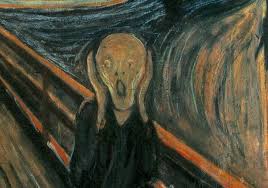The Genetic Connection Between Creativity and Mental Health: Unveiling the Science
The stereotype of the “tortured artist” has pervaded culture for centuries, from the philosophies of ancient Greece to the works of Shakespeare and the narratives of Hollywood. The idea that creativity and mental illness are intertwined is a captivating notion that has intrigued scientists and the public alike. Recent research suggests that this might not just be a myth but a complex reality rooted in our genetics.

The Icelandic Study Breaking New Ground
A Landmark Research Initiative
A pioneering study published in Nature Neuroscience examined the genetic data of over 86,000 Icelanders and 35,000 Swedes. Conducted by the genetics company deCODE, based in Reykjavik, Iceland, this large-scale research sought to explore the potential genetic link between creativity and mental health disorders such as schizophrenia and bipolar disorder.
Methodology: Who Was Studied?
The participants were divided into two primary groups:
- Creative Professionals: Individuals in artistic professions, including painters, musicians, writers, and dancers.
- Control Group: Individuals in non-artistic professions like farmers and salespeople.
By comparing these groups, researchers aimed to identify any genetic variations that might correlate with both creativity and mental health conditions.
Key Findings: Genetics at the Intersection of Art and Mental Illness
Increased Genetic Risk Among Creative Individuals
The study concluded that creative professionals are 25% more likely to carry gene variants associated with schizophrenia and bipolar disorder compared to the control group. This significant finding suggests a genetic overlap between creativity and certain mental health disorders.
Understanding the Genetic Overlap
The Role of Dopamine
One hypothesis is that dopamine, a neurotransmitter linked to mood regulation and cognitive function, plays a crucial role. Variants in genes affecting dopamine pathways might enhance creativity by promoting novel thinking but also increase susceptibility to mental health disorders.
Cognitive Divergence
Creativity often involves divergent thinking—the ability to generate many unique solutions to a problem. This cognitive style may be genetically linked to the thought patterns observed in some mental illnesses.
Current Trends and Further Research
Expanding the Scope Globally
Researchers are now looking to expand studies beyond Iceland and Sweden to see if these findings hold true across diverse populations. Global collaboration could help identify universal genetic markers associated with creativity and mental health.
Ethical Considerations
The potential to predict mental illness risk based on genetic markers raises ethical questions. How should this information be used, and what are the implications for individuals identified as high-risk?
Real-World Implications
Mental Health Support for Creative Individuals
Understanding the genetic link can lead to better mental health support tailored for those in creative fields. Early intervention strategies could be developed to assist individuals who might be at increased risk.
Challenging Stigmas
These findings can also help challenge the stigmatization of mental illness. Recognizing the genetic components shared between creativity and mental health disorders highlights the importance of a compassionate approach.
Conclusion
The genetic connection between creativity and mental health is a complex and multifaceted issue. This groundbreaking research provides valuable insights but also opens the door to new questions. As we continue to explore the depths of our genetics, we move closer to understanding the intricate tapestry that weaves together the human mind, creativity, and mental health.
About DNAForce Inc.
DNAForce Inc. is a leading provider of advanced genetic testing services, specializing in paternity tests. We are committed to delivering accurate and confidential results using state-of-the-art technology. Our team of experts is dedicated to helping you find answers and understand your genetic relationships with confidence. Visit our home page to learn more about how we can assist you.